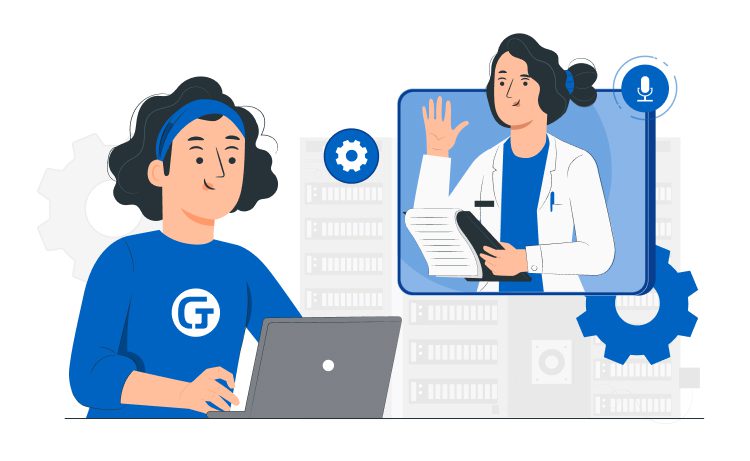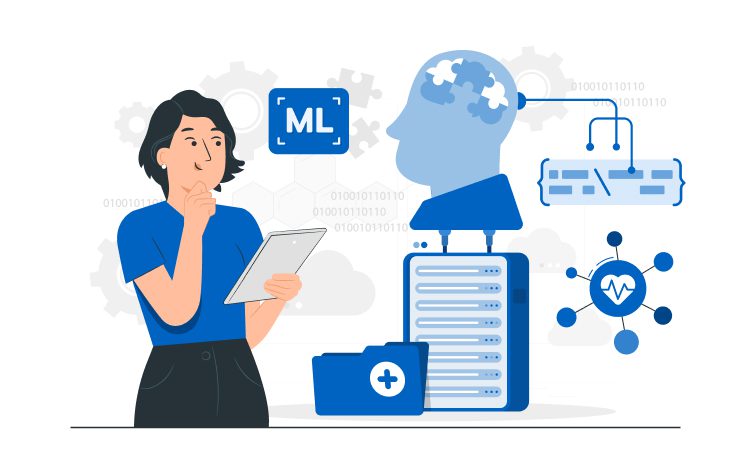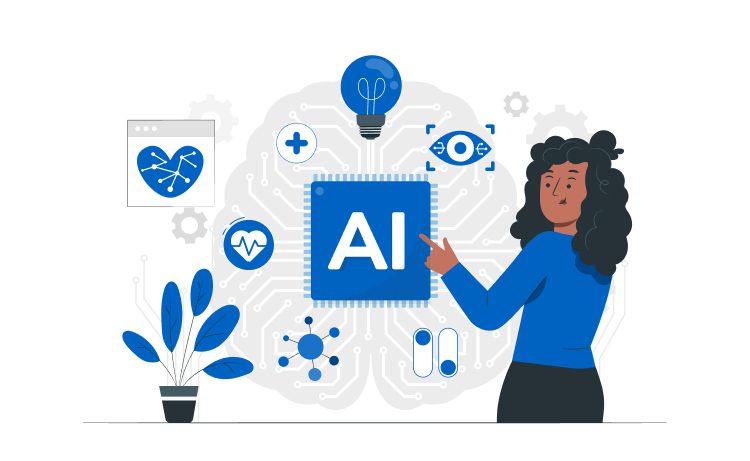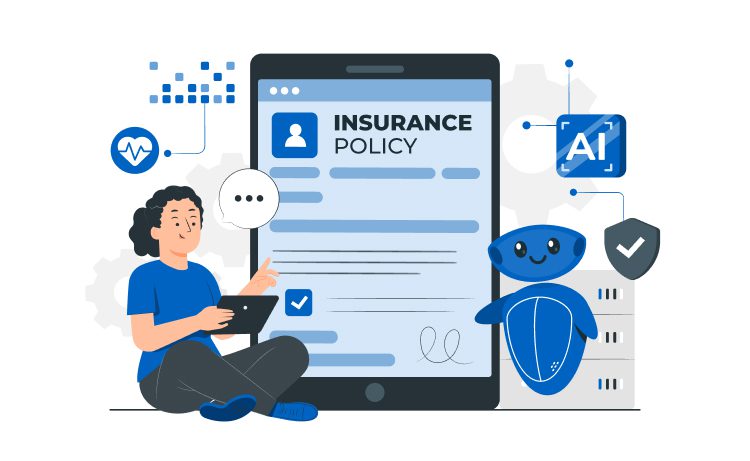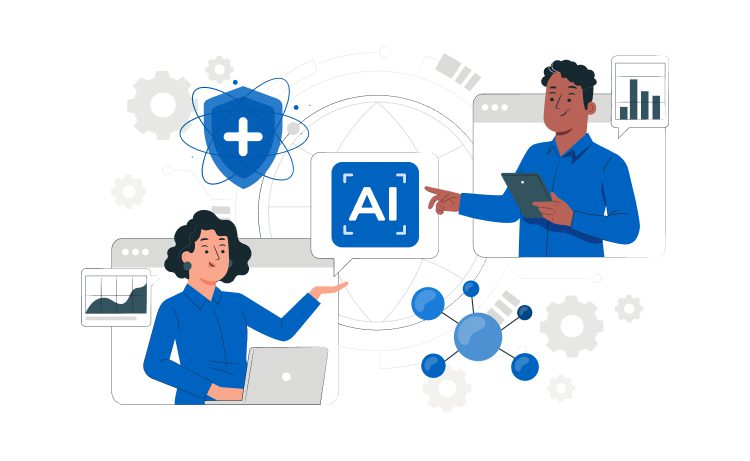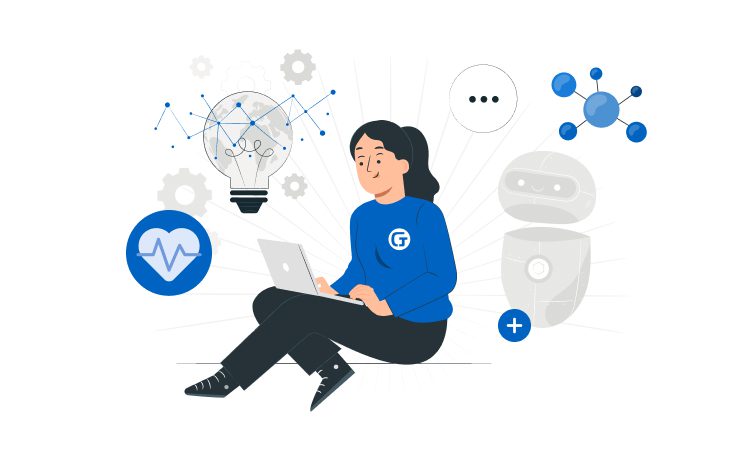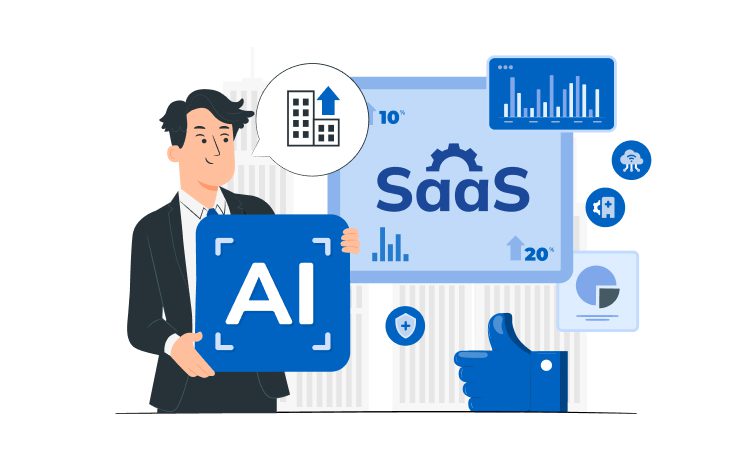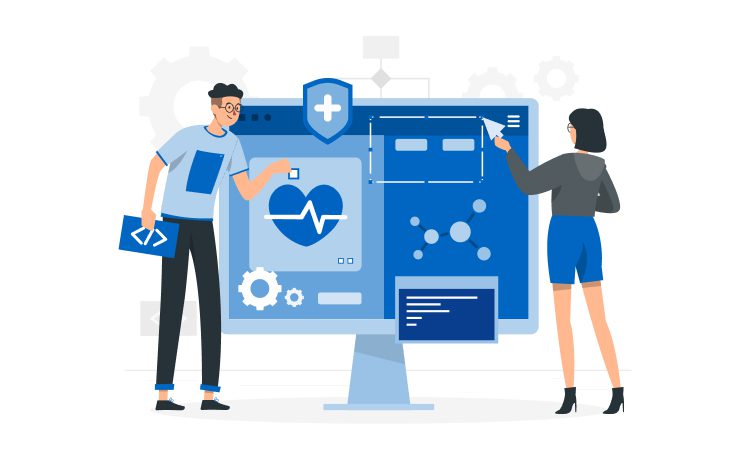
What You Need to Know About Healthcare Web Development in 2025



What’s the first thing you look for when searching for available services, whether in healthcare or any other industry? Most likely, the answer is the company’s website.
This common response emphasizes that a website is essential for all businesses, including those in the medical industry. It’s a tool for information delivery that builds trust and creates a space where your users ask questions and connect with your representatives. Accurate information delivery is crucial in the healthcare industry, where patient loyalty and satisfaction hinge on effective communication. With patient expectations on the rise, healthcare organizations are increasingly investing in the development of their websites.
In 2024, over 116 million people globally used online doctor consultations, showing rapid growth from prior years and highlighting the importance of online presence for medical facilities. What’s more interesting is that in the same year, Google published a report stating that 5% of all Google searches are healthcare-related. Why is this relevant? It gives you an approximate image of how many potential patients want to receive your services.
Medical website design and development are essential steps to bringing your services to your long-term and prospective patients.
In this article, we explore some of the most interesting aspects of healthcare websites, the website development process, features, timelines, project costs, and more. So, let’s dive in and learn more about healthcare web development.
Content
So far, we’ve established that a strong online presence is no longer optional, especially in healthcare, where millions now prefer online consultations over in-person visits. But what are the other benefits of healthcare website development, and what do they do for your medical establishment?
At first glance, investing in healthcare website development might not seem like a way to reduce costs. Yes, there is an upfront expense, but in the long run, a well-built medical website can significantly cut down on unnecessary spending and reduce the burden of manual administrative tasks.
Take electronic health records, for example. EHR systems are medical web applications built primarily for healthcare providers, not patients, and designed to digitize medical records. These systems streamline data storage, reduce paperwork, and eliminate the need for physical filing systems. Healthcare organizations that implement EHR can significantly minimize clerical errors and save time, leading to substantial reductions in administrative overhead.
Patient scheduling and billing software, which are software types that are used by your patients, can also reduce long-term costs. These solutions offer easy substitution for administrative work. Another effective cost-saving option is implementing telehealth systems, which are built to make it more comfortable for your clients to book appointments online, chat with doctors, and reduce hospital visits and resource use overall.
One of the most significant advantages of healthcare website development is the differentiation from competitors. Many medical organizations have healthcare websites, but not all of them succeed in offering user-friendly interfaces and intuitive experiences. So, developing a custom one for your business will help you stand out among other providers.
Be sure to choose a mobile-responsive medical website design, provide comprehensive information about your practice, reassure visitors that their medical data is secure and fully compliant with regulations, and optimize your site for search engines. Do all that, and you’ll have a successful, efficient healthcare website that helps you stand out among competitors.
Having a healthcare website means you can promote your services internationally, connect with your audience online, provide them with special offers, and expand your patient base through social media integration.
Healthcare website development also opens the door to paid advertising, allowing you to position your services directly in front of Google users and take an active role in patient acquisition and engagement. And when paired with a built-in CRM system, your website becomes a powerful marketing engine. With its help, you’ll send out personalized promotion emails, offer custom-made sales and gifts to your site visitors, and create a tailored user experience. Additionally, using an SPF record creator can ensure that your emails reach their destination without being flagged as spam, helping maintain a trustworthy sender reputation.
The skilled professionals at Glorium Technologies have completed many successful healthcare developments. We craft solutions quickly and efficiently while taking into account all current best practices for security and interface usability. Meanwhile, our developers’ work is less expensive than that of similar developers in Western countries.
A deep understanding of development methodologies and marketing strategies for startups and businesses in healthcare enables us to choose the most optimal project implementation scheme, allowing clients to complete the project more efficiently.
Oleh PuhachDelivery Manager in Growth, Glorium Technologies
Developing a healthcare website may sometimes seem like an intuitive move to make. However, some companies hesitate to invest in the development process, postpone it, or opt for an off-the-shelf solution. In this section of the article, we’re going to give you a little guide on deciding whether you need to start your healthcare website development journey or not.
These are all the best reasons to build a medical website for your company:
If you’re unsure whether you need a medical website or not, we have experts ready to connect with you and answer all of your questions. You can easily schedule a free consultation with us and talk to our representatives, who will guide you.
Ready-made healthcare websites do their work, but we recommend customized websites for scalability, growth, and personalization. Off-the-shelf websites and build-by-block websites are good when you’re starting out, but what happens when your requirements grow? As your medical practice grows, your website should grow with it. A custom-built solution ensures your platform can adapt to changing requirements, support new interactive features, and deliver a seamless experience for both patients and staff.
Hiring an in-house team for your web development is a plausible option, but we recommend looking for outsourced healthcare website development services.
Here’s how you know you may need to outsource web development:
If any of these sound familiar, outsourcing to a specialized healthcare web development partner can save you time, reduce costs, and help you move faster with less risk.
The modern healthcare sector is complex, fast-evolving, and heavily dependent on technology. A well-built medical website plays a key role in helping providers deliver services more efficiently, improve patient care, and connect with their current patients.
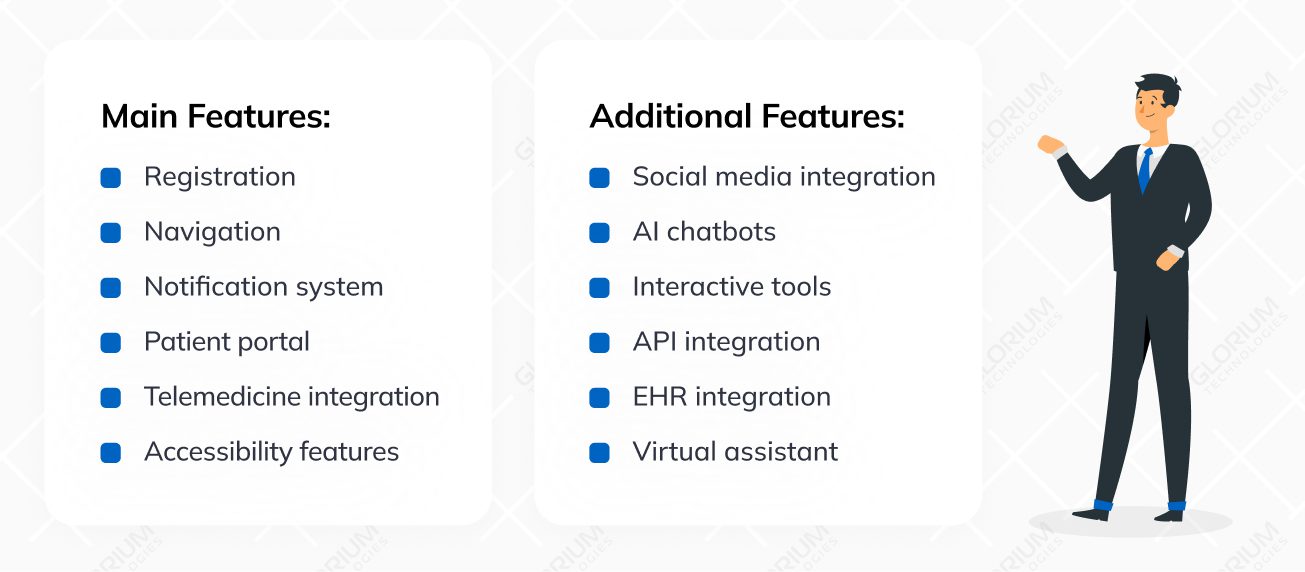
What makes healthcare website development worth it? The important features we put in them, whether it’s a website or a medical web app. These features and functionalities can make or break your website, and it’s essential to integrate the accurate ones correctly.
Registration features make it easier for users to access your medical services, create their profiles, and store their medical data. Additionally, a well-developed medical website includes a clear, mobile-first navigation system that helps visitors find what they need with ease. These features are necessary to create a comfortable patient experience on your medical website.
Registration is a key feature that lays the foundation for creating a personalized patient portal. With the help of a patient portal, users can securely store important medical information, manage appointments, and tailor the website interface to their preferences. Adding a notification system is also necessary to provide your audience with customized information and personalized deals.
A major driver for healthcare website development is the integration of telemedicine capabilities. These features improve accessibility for patients and enhance convenience for healthcare providers. Standard online tools include booking systems, real-time video or chat consultations, symptom trackers, and other digital care options.
Neglecting accessibility features for your medical web app can limit your access to a vast pool of patients and customers. These features include keyboard navigation, text-to-speech functionality, and multilingual support, which provide access to website visitors with disabilities or those who need remote services for various reasons
Aside from the necessary and must-have features, there are also additional or advanced features that you can add to your healthcare web application. Social media integration is one of these features. This integration allows patients to interact with the community and you to grow your user base. Interactive digital tools like calculators, gamified elements, and symptom checkers also make it possible to improve engagement and foster a sense of connection and support.
Remote and online services often require 24/7 support, and having a chatbot on your healthcare website is convenient for both your patients and administrative staff. Patients can interact with AI chatbots and virtual assistants to book video consultations and real-life visits, while your administrative staff can use it to automate repetitive processes. By handling FAQs, appointment requests, and initial consultations, chatbots help convert visitors without requiring human intervention.
Healthcare website development often includes API and EHR integration to connect your site with other systems. Third-party APIs give users comfort and improve accessibility. Electronic health record systems, on the other hand, reduce the risk of errors and provide healthcare providers with complete and accurate information about their patients and health data.
HIPAA compliance and medical industry regulations should be a top priority when it comes to medical website development. Building a healthcare website requires professional attention strictly for compliance reasons.
The Health Insurance Portability and Accountability Act (HIPAA) is a set of rules for sharing personal medical information and protecting it from unauthorized access.
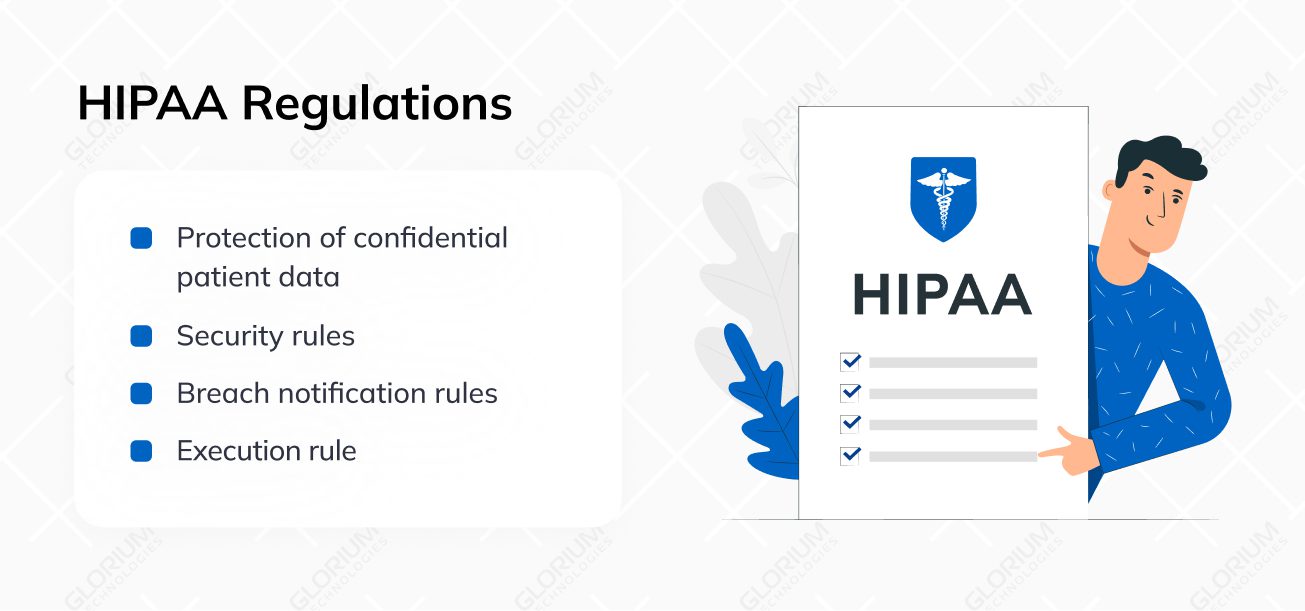
Whether you are hiring an in-house medical web development team or working with outsourced service providers, this is essential information you should be equipped with.
Here’s how our development team works to safeguard your healthcare website and prevent data breaches, implementing robust cybersecurity measures:
This list highlights how important it is to hire professional medical website developers for your web development project. You’ll work with experts who have extensive experience in healthcare website development, managing regulations, and integrating advanced functionalities.
When developing healthcare projects, you must comply with HIPAA and GDPR. These are the main standards governing software development for the industry. HIPAA stands for the US Health Insurance Portability and Accountability Act, which protects against disclosure (without patients’ consent or knowledge) of their privacy and health records. The software must be HIPAA compliant in the following ways:
- User authorization
- Data access control
- Authorization monitoring
- Backup
- Error correction plan
- Emergency mode
- Automatic exit from the system
- Data encryption and decryption.
Before our team gets to work on a healthcare project, all developers are trained in HIPAA Compliance.
Valerii BobrovskyDeveloper, Glorium Technologies
Simply said, we recommend being cautious with HIPAA compliance and not cutting corners when developing medical websites. Most healthcare organizations that neglect these regulations put themselves at risk of legal action, reputational damage, and substantial fines.
Here’s a quick guide to medical website development to help you understand how the process works, whether you choose to handle it in-house or outsource it to a professional team. At Glorium Technologies, we follow a proven, step-by-step approach to building healthcare websites. Our experts ensure clarity, quality, and compliance at every stage. Let’s walk you through our streamlined development process to show you how we bring medical websites to life.
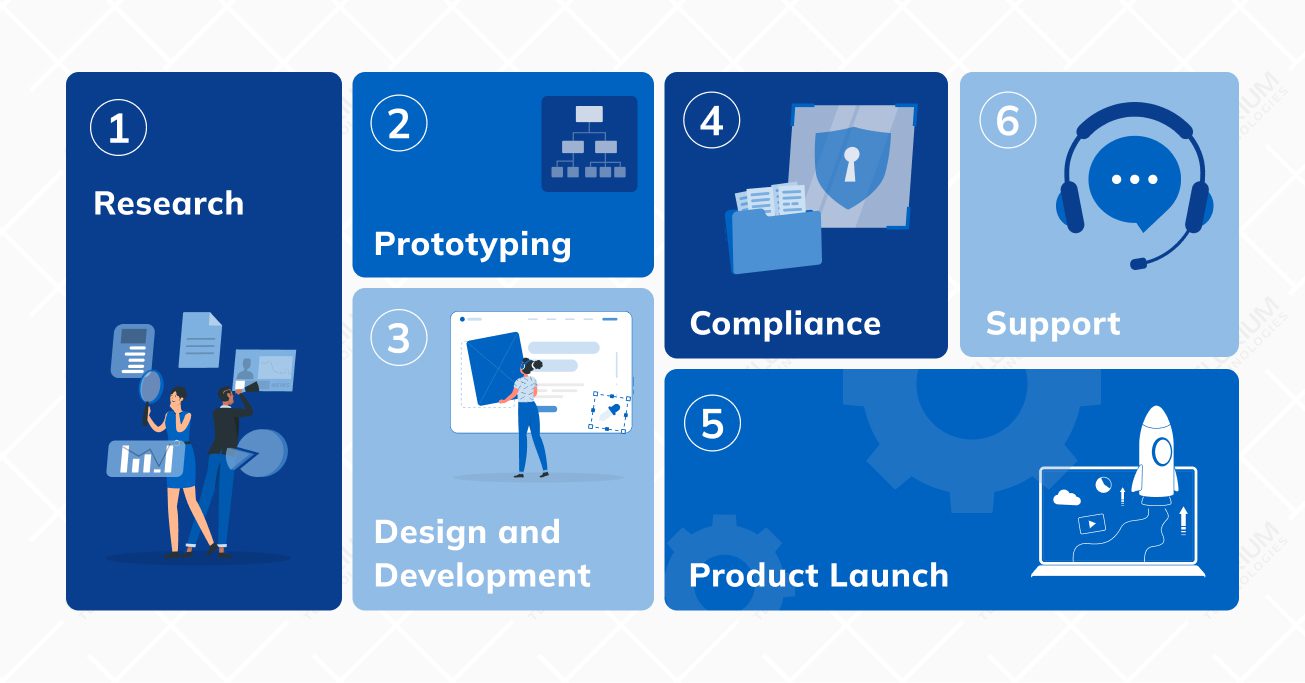
The first step of a medical website project (every project, in fact) is to conduct thorough research. Our healthcare web development team consists of various professionals, including market researchers and UX experts.
We start our development process by learning about your target audience and the end user’s needs. This information helps us pinpoint the audience’s pain points and build a healthcare website with tailored features.
The next step involves medical website design creation, user testing, and prototyping. At this stage, we embody your product idea and provide you with the first visual preview. Once the prototype is ready, we present it to typical end users and collect feedback about its performance. If necessary, we make changes and enhancements before developing the full-scale solution.
This step is where we work on a user-friendly medical web design for the final product. Our UX/UI designer follows the feedback we’ve received from the prototyping stage and crafts the design. Our developers choose the tech stack to align with the predicted development time, quality, scalability, and cost.
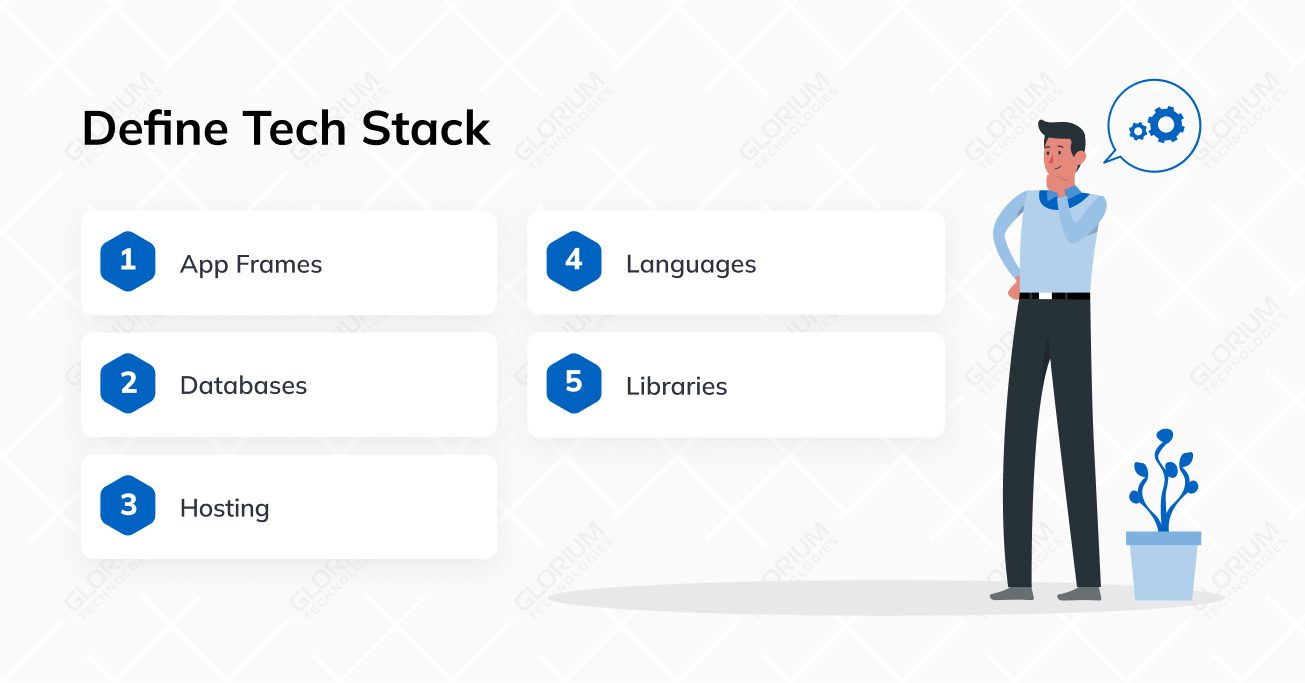
In order to meet the HIPAA requirements and protect patient information, we apply a number of measures at every stage of developing healthcare web applications. For example, we only work with HIPAA-compliant third-party tools and never store sensitive client data unless absolutely necessary. We also apply robust encryption methods to prevent data loss and block unauthorized access, ensuring your platform stays secure and compliant.
At this stage, we finally have the end product ready. It’s compliant with regulations, has a user-friendly design, and has all the necessary features. This is one of the most critical steps of medical web development since launching the product enables us to monitor its performance at full strength and gather necessary data, ensuring high availability for both patients and staff.
No application or website is perfect from the start, and end-user feedback will provide us with some guidance and insights. We use this information to further improve our software and update functionalities and features. This ongoing process boosts user satisfaction and helps us ensure compliance with evolving regulations like HIPAA or other healthcare standards.
Usually, our collaboration doesn’t end with the product launch. If you’re looking for a healthcare web development partner to outsource the development, make sure to connect with a company that offers post-launch support and maintenance services. Ongoing updates, security patches, and performance monitoring on our side are essential to ensure long-term stability and compliance.
One of the most influential elements of the decision is development costs. It’s a complex subject to discuss in the article, but we can provide you with an approximate estimate. The price depends on the number of features, software complexity, and developers’ hourly rates.
A simple way to estimate the cost is to multiply the total development hours by the hourly rate. However, the final price also depends on whether you choose an in-house team, freelancers, or an outsourced partner.
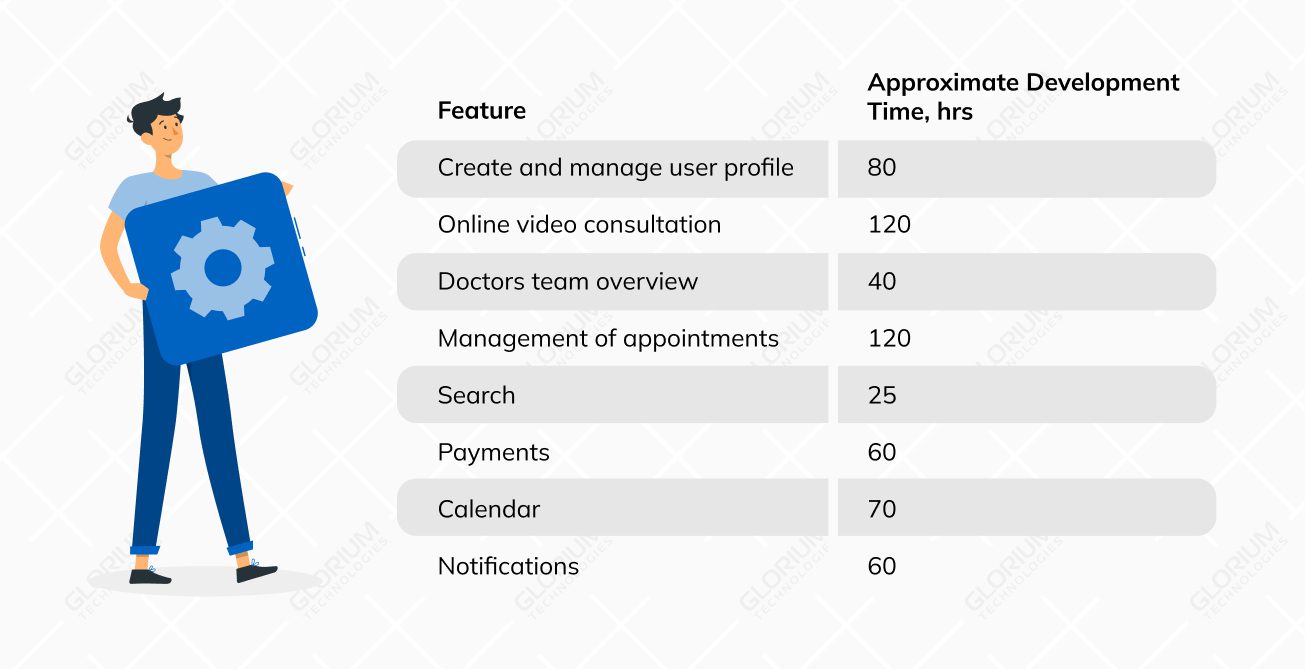
Location matters significantly. For example, healthcare web design and development services in the U.S. can cost around $150 per hour and $100 in Western Europe. In contrast, choosing a reliable provider with delivery centers in Eastern Europe, such as Glorium Technologies, can be far more cost-effective, with rates averaging around $50 per hour. This makes outsourcing to Eastern Europe a smart choice for maintaining quality while optimizing your budget.
Finding healthcare website developers is a challenging task, especially if you’re looking for professionals with extraordinary skill sets. In-house hiring will take a lot of time and money, and finding professional service providers will require you to go through a thorough assessment process.
With so many outsourcing options available, the real challenge is finding a dedicated outsourcing partner who not only delivers but is truly invested in your success.
To be sure you’re working with professionals, go through this evaluation process:
At Glorium Technologies, we provide free consultations without commitment to make sure our potential clients get to know our processes and development methodology.
Don’t underestimate this step. Make sure you talk to the company representatives and ask all the questions you need to ask. Go through their website and clientele to learn more about their professional approach.
You can read the reviews on the company’s website and platforms such as Clutch and Goodfirms. There, you’ll find the reviews of each IT outsourcing company and information about the company’s work approach.
If you already have a list of the potential IT outsourcing partners, another useful step could be to ask for recommendations from the partners’ previous clients. This can give you deeper insight into how organized the company is, the quality and range of services they provide, their communication style, and overall client satisfaction. It’s one of the most effective ways to validate their credibility before making a decision.
After identifying the objectives of IT outsourcing, the next step is to search for an IT company that will suit your business needs. It is not that simple, and one has to work hard to gather relevant information.
It is unfortunate that many firms encounter the same fault when in search of their IT partners. They only use Google search results. However, Google will not give you answers that are pertinent to your project. You have to dig deeper: evaluate portfolios, review client testimonials, and look for proven experience in your industry.
Glorium Technologies has been developing healthcare software for over 15 years and has had the privilege of building solutions for many forward-looking clients. We offer flexible collaboration models, end-to-end support, and access to a modern, reliable tech stack tailored to your goals.
Our teams include full-stack developers, front-end developers, project managers, web design experts, and many other cross-industry professionals.
Schedule your consultation with us today and talk to our web design experts, who will guide you through your success roadmap.
We provide post-launch support that involves solving technical problems, handling customer complaints, and implementing the recommended changes. Our support team is here to help resolve any issues, ensuring your website runs smoothly and without hassle.
Yes, we can help you migrate your current healthcare site to a new platform or enhance it with new capabilities or designs. We offer the best migration services that help you transfer patient data between platforms while maintaining minimal downtime.
Yes. Our SEO services include keyword research, on-site optimization, content strategy, and technical optimization, all designed to optimize websites to rank high on search engines. We focus on the set of healthcare-related keywords and recommendations for site optimization to attract and retain patients using organic search.
The technology stack for healthcare web app development will vary depending on the needs of the given project. Languages and technologies that have been used include JavaScript, MySQL, AWS, HTML5, React, CSS3, Node.js, and D3.js. The focus should be on the stack that can provide not only the needed scalability but also security and high performance.
To meet the HIPAA regulations, it is advisable to work with developers who have previous experience in developing healthcare web applications and are conversant with the HIPAA rules. Some of the recommendations include ensuring that the client’s data is backed up, engaging compliant third-party vendors, and encrypting PHI.

